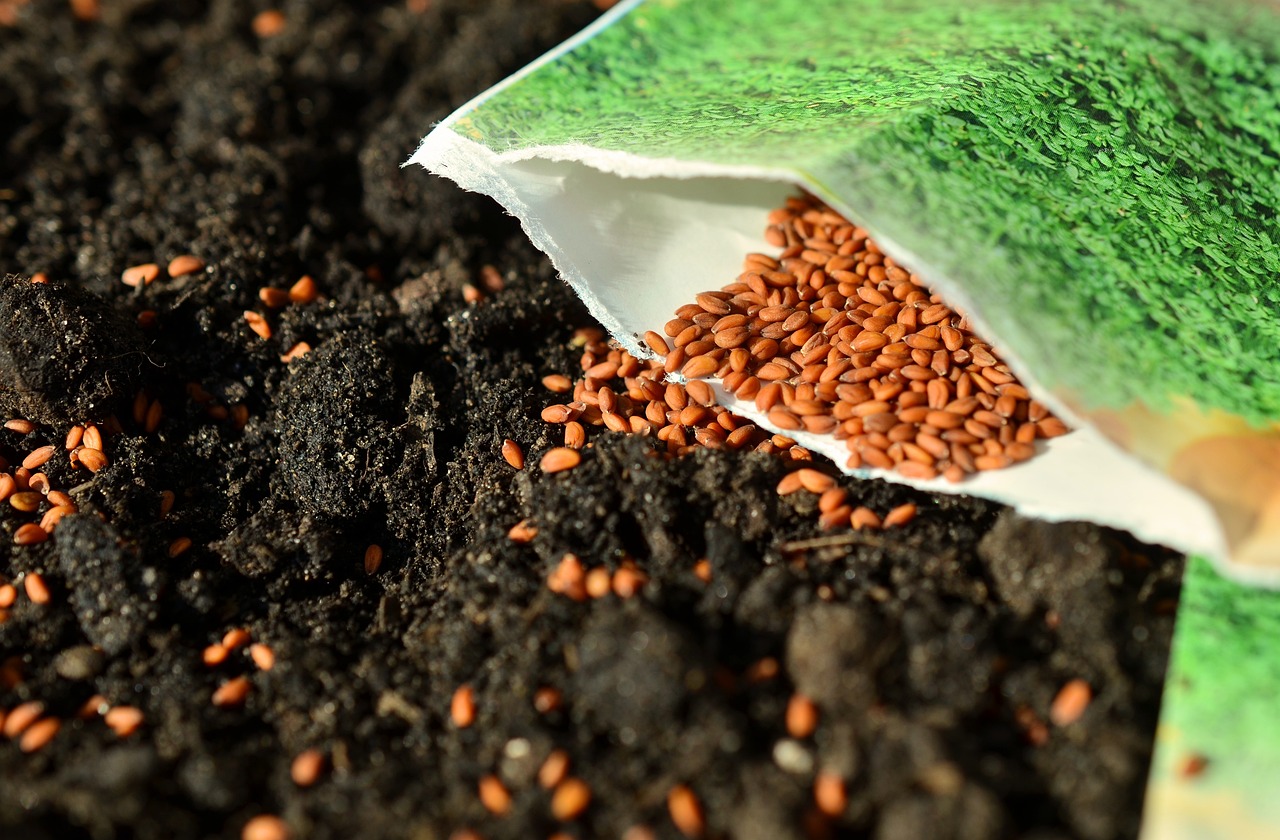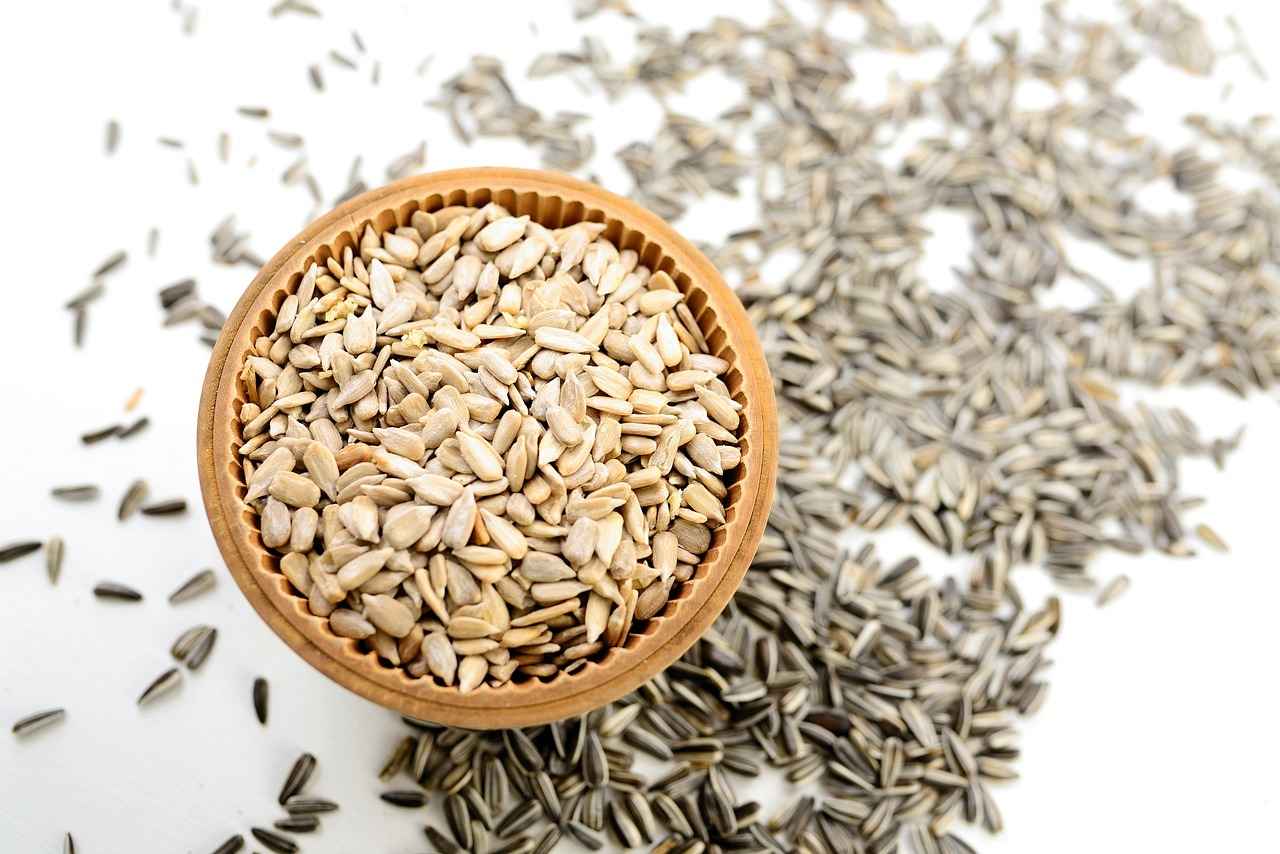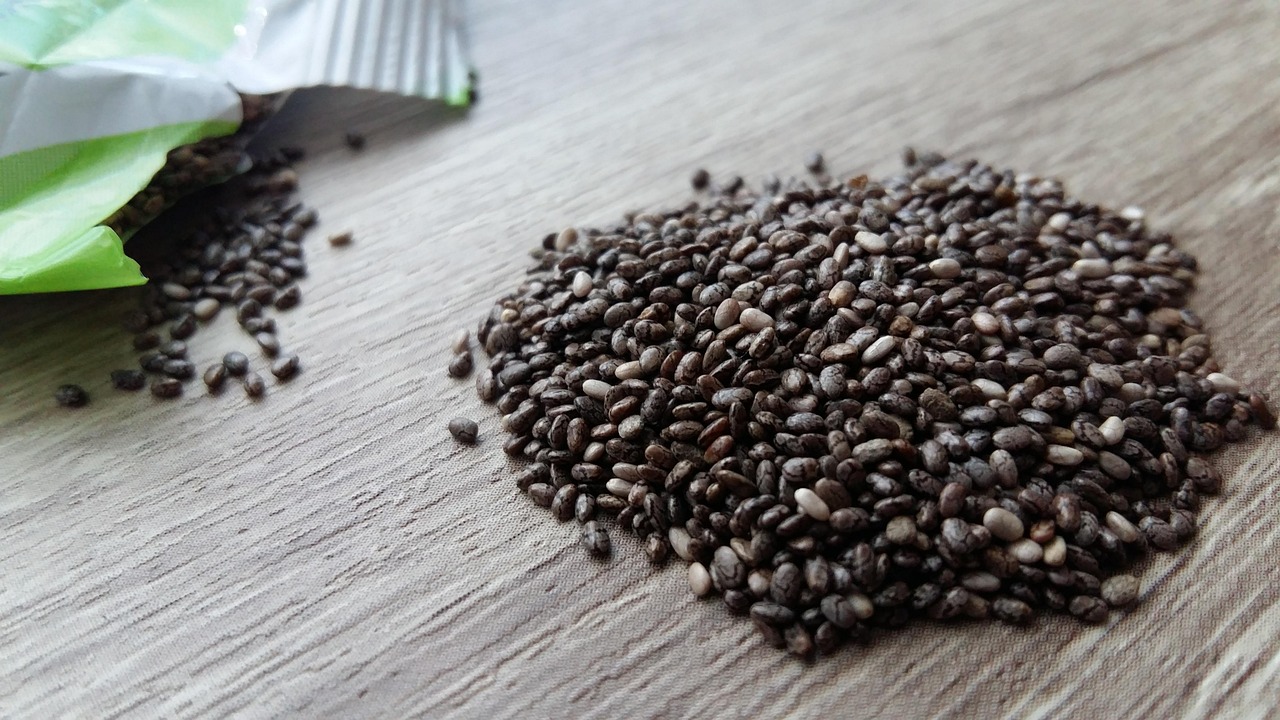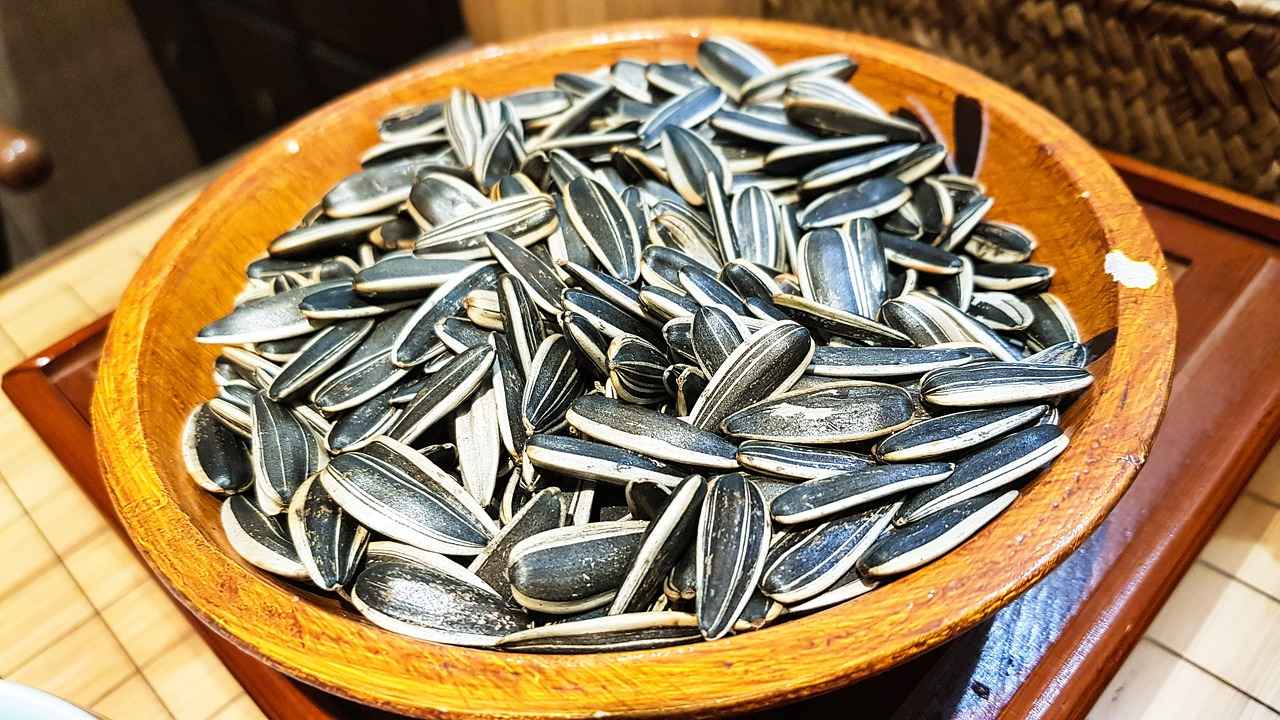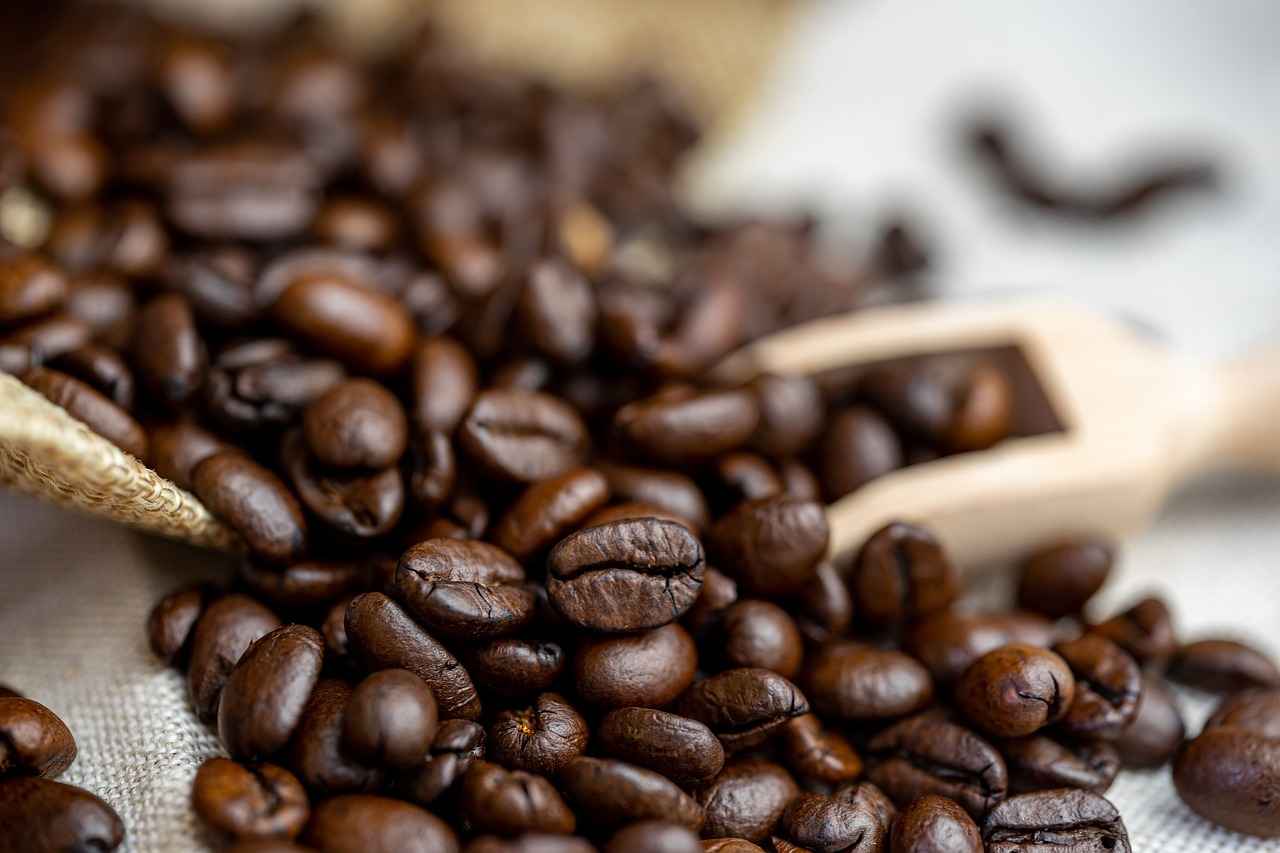This article explores the relationship between chia seeds and constipation, examining their nutritional profile, potential side effects, and how to incorporate them into your diet effectively.
What Are Chia Seeds and Their Nutritional Benefits?
Chia seeds, derived from the Salvia hispanica plant, are tiny yet nutrient-dense superfoods. They are rich in fiber, providing about 11 grams per ounce, which can significantly contribute to your daily fiber intake. Additionally, they are an excellent source of omega-3 fatty acids, antioxidants, and essential minerals such as calcium and magnesium. Understanding their nutritional profile is crucial for evaluating their impact on digestive health.
How Do Chia Seeds Affect Digestion?
Chia seeds have the unique ability to absorb water, expanding up to 10-12 times their original size. This property can aid digestion by promoting a feeling of fullness and potentially preventing overeating. However, their high fiber content can lead to digestive issues, including bloating or discomfort, if not consumed with adequate hydration.
Can Chia Seeds Cause Constipation?
While chia seeds are generally beneficial for digestion, improper consumption or insufficient water intake can indeed lead to constipation. If you consume chia seeds without enough fluids, they may absorb water from your digestive tract, resulting in hard stools. Therefore, it is essential to maintain a proper balance of chia seed intake and hydration.
What Is the Recommended Daily Intake of Chia Seeds?
Experts recommend a daily intake of 1-2 tablespoons of chia seeds. This amount is sufficient to reap their health benefits without overwhelming your digestive system. Monitoring your intake can help prevent potential digestive problems, including constipation.
How to Prepare Chia Seeds for Optimal Digestion?
To enhance digestibility, it is advisable to soak chia seeds before consumption. Soaking them in water or a liquid of your choice for about 30 minutes allows them to absorb moisture and form a gel-like consistency. This preparation method minimizes the risk of digestive discomfort and makes them easier to digest.
What Are the Potential Side Effects of Chia Seeds?
Although chia seeds are generally safe for most individuals, some may experience side effects such as bloating, gas, or constipation. These reactions can often be mitigated by adjusting the portion size or ensuring adequate hydration when consuming chia seeds.
How to Incorporate Chia Seeds into Your Diet?
Incorporating chia seeds into your diet can be both simple and delicious. Here are some ideas:
- Add them to smoothies for a nutritional boost.
- Mix them into oatmeal or yogurt for added texture.
- Use them in baked goods like muffins or bread.
- Make chia pudding by soaking them in almond milk or coconut milk overnight.
Exploring various recipes can help you enjoy their benefits while avoiding digestive issues.
Are There Alternatives to Chia Seeds for Fiber?
If you find that chia seeds cause digestive discomfort, there are several fiber-rich alternatives to consider. Options like flaxseeds, oats, and various fruits and vegetables can effectively contribute to your daily fiber intake and support digestive health without the potential side effects of chia seeds.
When Should You Consult a Doctor About Digestive Issues?
If you experience persistent constipation or significant digestive discomfort after consuming chia seeds, it is advisable to consult a healthcare professional. They can provide tailored advice based on your individual health needs and help address any underlying issues.

What Are Chia Seeds and Their Nutritional Benefits?
Chia seeds, derived from the Salvia hispanica plant, are small, black or white seeds that have gained immense popularity due to their impressive nutritional profile. These tiny seeds are not only versatile but also packed with essential nutrients that can significantly benefit your health.
Rich in Fiber: One of the most notable features of chia seeds is their high fiber content. Just one ounce (about 28 grams) of chia seeds contains approximately 11 grams of dietary fiber. This fiber is primarily soluble, which means it absorbs water and forms a gel-like substance in the stomach. This property can help promote a feeling of fullness, which is beneficial for weight management.
Omega-3 Fatty Acids: Chia seeds are also an excellent source of omega-3 fatty acids, particularly alpha-linolenic acid (ALA). Omega-3s are essential fats that play a crucial role in heart health, reducing inflammation, and supporting brain function. Including chia seeds in your diet can help ensure you get an adequate intake of these vital nutrients.
Antioxidants: In addition to fiber and omega-3s, chia seeds are rich in antioxidants. These compounds help combat oxidative stress in the body, reducing the risk of chronic diseases such as heart disease and cancer. Antioxidants are crucial for maintaining overall health and well-being.
Vitamins and Minerals: Chia seeds are also a good source of various vitamins and minerals, including calcium, magnesium, phosphorus, and manganese. These nutrients are essential for maintaining bone health, energy production, and overall metabolic function.
- Calcium: Important for bone health and muscle function.
- Magnesium: Supports over 300 biochemical reactions in the body.
- Phosphorus: Vital for healthy bones and teeth.
- Manganese: Plays a role in metabolism and bone formation.
Incorporating chia seeds into your diet is simple. They can be added to smoothies, yogurt, oatmeal, or baked goods. When soaked in water or other liquids, they swell and create a gel-like consistency, making them a fantastic thickening agent for various recipes.
However, it is essential to consume chia seeds with adequate hydration. Due to their high fiber content, if not consumed with enough water, they can lead to digestive discomfort. Therefore, it is advisable to start with small amounts and gradually increase your intake.
In summary, chia seeds are a nutrient-dense superfood that can offer numerous health benefits. Their unique combination of fiber, omega-3 fatty acids, and antioxidants makes them a valuable addition to any diet. Understanding their nutritional profile can help you harness their benefits while maintaining digestive health.

How Do Chia Seeds Affect Digestion?
Chia seeds have gained popularity as a superfood, often hailed for their numerous health benefits. One of the most intriguing aspects of these tiny seeds is their impact on digestion. In this section, we will delve into how chia seeds affect digestion, their water-absorbing properties, and the importance of proper consumption to avoid potential digestive issues.
What Makes Chia Seeds Unique?
Chia seeds are known for their remarkable ability to absorb water—up to 12 times their weight. This unique characteristic allows them to expand in the stomach, creating a gel-like substance that can aid in digestion. The high fiber content of chia seeds contributes to this effect, promoting a feeling of fullness and potentially assisting in regulating bowel movements.
How Do Chia Seeds Absorb Water?
When chia seeds are mixed with liquid, they swell and form a gel. This process not only enhances their volume but also helps to slow down the digestion process, which can be beneficial for those looking to manage their appetite. The gel-like consistency can also aid in the smooth passage of food through the digestive tract.
Potential Digestive Issues
While chia seeds can be beneficial for digestion, it is essential to consume them properly. The high fiber content can lead to digestive discomfort, such as bloating or constipation, particularly if chia seeds are consumed in large quantities without adequate hydration. It is crucial to pair chia seeds with sufficient water intake to facilitate their digestion and absorption.
How to Incorporate Chia Seeds Safely
- Start Slowly: If you are new to chia seeds, begin with 1 teaspoon and gradually increase your intake to allow your digestive system to adjust.
- Soak Before Eating: Soaking chia seeds in water or another liquid for at least 30 minutes before consumption can enhance their digestibility and minimize the risk of discomfort.
- Stay Hydrated: Ensure you drink plenty of water throughout the day, especially when consuming fiber-rich foods like chia seeds.
Who Should Avoid Chia Seeds?
Individuals with certain digestive disorders or those who have a history of gastrointestinal issues should consult a healthcare professional before adding chia seeds to their diet. While they are generally safe for most people, some may experience adverse effects, especially if they do not consume them with adequate fluids.
Conclusion
In summary, chia seeds can positively affect digestion by absorbing water and expanding in the stomach. However, their high fiber content necessitates careful consumption to avoid potential digestive issues. By understanding how to incorporate chia seeds into your diet effectively, you can enjoy their benefits while minimizing any discomfort.

Can Chia Seeds Cause Constipation?
Chia seeds have gained popularity as a superfood due to their numerous health benefits, particularly for digestion. However, many people wonder, can chia seeds actually cause constipation? While these tiny seeds are generally beneficial, improper consumption or inadequate hydration can lead to digestive issues, including constipation. Understanding how to consume chia seeds correctly is essential for maintaining digestive comfort.
Understanding Chia Seeds and Their Benefits
Chia seeds are rich in dietary fiber, omega-3 fatty acids, and antioxidants, making them a valuable addition to any diet. The high fiber content, approximately 10 grams per ounce, can support digestive health by promoting regular bowel movements. However, this same fiber can become problematic if not consumed with adequate fluids.
How Chia Seeds Interact with Digestion
When chia seeds are consumed, they can absorb up to 12 times their weight in water, forming a gel-like substance in the stomach. This can aid in digestion by slowing down the absorption of food and providing a feeling of fullness. However, if chia seeds are eaten without sufficient hydration, they may expand in the digestive tract, potentially leading to discomfort or constipation.
Recommended Daily Intake of Chia Seeds
Experts recommend a daily intake of 1-2 tablespoons of chia seeds. This amount provides the benefits of fiber without overwhelming the digestive system. It’s crucial to gradually introduce chia seeds into your diet, especially if you are not accustomed to high-fiber foods, to allow your digestive system to adjust.
Preparation Techniques for Optimal Digestion
To enhance the digestibility of chia seeds, soaking them in water or adding them to smoothies can be beneficial. Soaking allows the seeds to absorb water before consumption, which can help prevent them from expanding in the digestive tract and causing discomfort. Additionally, incorporating chia seeds into recipes such as puddings or baked goods can also improve their digestibility.
Potential Side Effects of Chia Seeds
While chia seeds are generally safe for most people, some may experience side effects such as bloating, gas, or constipation. These symptoms are often linked to improper consumption or insufficient hydration. If you notice any adverse effects after consuming chia seeds, it may be a sign that you need to adjust your intake or preparation method.
Incorporating Chia Seeds into Your Diet
- Add chia seeds to smoothies for an extra boost of nutrition.
- Mix them into oatmeal or yogurt for added texture and fiber.
- Use them in baking recipes, such as muffins or energy bars, to enhance fiber content.
Finding creative ways to include chia seeds in your meals can help you enjoy their benefits while minimizing the risk of digestive issues.
Alternatives to Chia Seeds for Fiber
If you find that chia seeds cause digestive discomfort, there are several alternatives rich in fiber, such as flaxseeds, oats, and various fruits. These options can help you maintain digestive health without the potential side effects associated with chia seeds.
When to Seek Medical Advice
If you experience persistent constipation or other digestive issues after consuming chia seeds, it is advisable to consult a healthcare professional. They can provide tailored advice and help identify any underlying conditions that may be contributing to your symptoms.
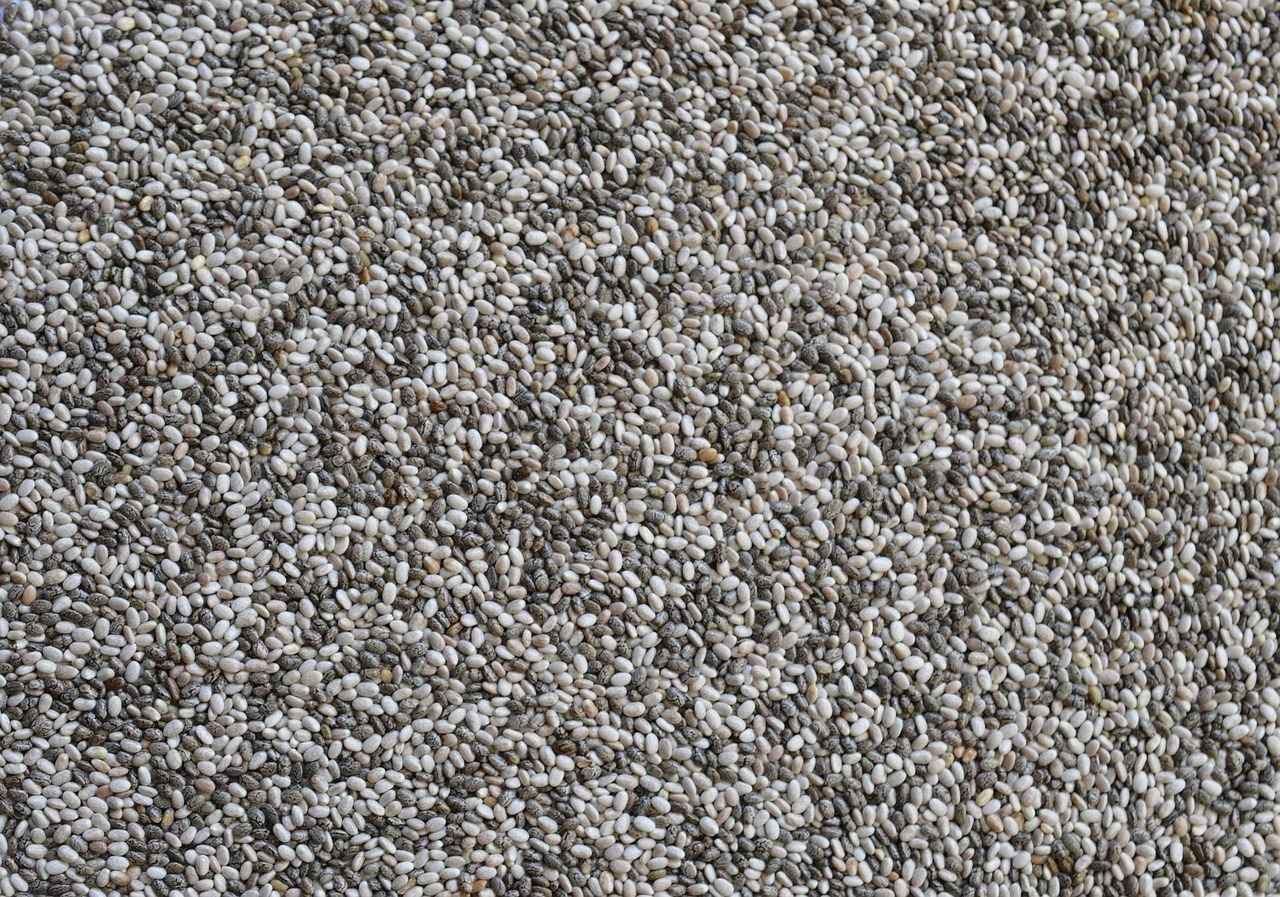
What Is the Recommended Daily Intake of Chia Seeds?
When it comes to incorporating chia seeds into your diet, understanding the recommended daily intake is crucial for maximizing their health benefits while minimizing potential digestive issues. Experts suggest a daily intake of 1-2 tablespoons of chia seeds, which can provide a wealth of nutrients without overwhelming your digestive system.
Chia seeds are celebrated for their impressive nutritional profile. They are rich in fiber, which is essential for healthy digestion. A single ounce (about 28 grams) of chia seeds contains approximately 11 grams of fiber, making them an excellent choice for those looking to enhance their fiber intake. However, it is important to note that fiber needs to be consumed in conjunction with adequate hydration. This is because chia seeds can absorb up to 12 times their weight in water, expanding in your stomach and potentially leading to digestive discomfort if not properly hydrated.
To prevent constipation and other digestive problems, it’s essential to understand how to incorporate chia seeds into your diet effectively. Start with 1 tablespoon per day, gradually increasing to 2 tablespoons as your body adjusts. This gradual increase allows your digestive system to adapt to the higher fiber content without causing discomfort.
Soaking chia seeds before consumption is a highly recommended practice. By soaking them in water or adding them to smoothies, you can enhance their digestibility. Soaked chia seeds form a gel-like consistency, which not only makes them easier to consume but also aids in moisture retention in the digestive tract, thus helping to alleviate constipation.
In addition to their digestive benefits, chia seeds are a fantastic source of omega-3 fatty acids, protein, and various essential minerals. These nutrients contribute to overall health, making chia seeds a valuable addition to your diet. However, if you find that chia seeds lead to digestive discomfort, it may be wise to consider alternatives such as flaxseeds, oats, or a variety of fruits and vegetables that are also rich in fiber.
It is essential to listen to your body and adjust your intake accordingly. If you experience persistent digestive issues, consulting a healthcare professional is advisable. They can provide personalized recommendations based on your health needs, ensuring that you enjoy the benefits of chia seeds without the drawbacks.
In summary, incorporating chia seeds into your diet can be highly beneficial, provided you adhere to the recommended daily intake of 1-2 tablespoons. By doing so, you can enjoy their numerous health benefits while maintaining digestive comfort. Remember to stay hydrated and consider soaking the seeds to maximize their potential.

How to Prepare Chia Seeds for Optimal Digestion?
Chia seeds have gained popularity as a superfood, renowned for their numerous health benefits. However, to fully harness their potential, it’s essential to understand how to prepare chia seeds for optimal digestion. This preparation can significantly enhance their digestibility and ensure that you reap all the benefits without experiencing any digestive discomfort.
Soaking chia seeds is an effective method to improve their digestibility. When you soak these tiny seeds in water or any liquid, they can absorb up to 10-12 times their weight in water. This hydration process transforms the seeds into a gel-like consistency, which can be easier on the digestive system. The gel created helps to slow down the absorption of carbohydrates, which can aid in stabilizing blood sugar levels.
- Measure the Seeds: Start with 1-2 tablespoons of chia seeds.
- Select Your Liquid: Use water, almond milk, coconut milk, or any preferred liquid.
- Mix and Wait: Combine the seeds with your chosen liquid in a bowl or jar. Stir well and let it sit for at least 30 minutes to an hour. For best results, soaking overnight is recommended.
- Check the Consistency: After soaking, the seeds should have absorbed the liquid and formed a gel. If they appear too thick, you can add more liquid to achieve your desired consistency.
Soaking chia seeds not only enhances their digestibility but also offers several other benefits:
- Reduces Digestive Discomfort: By absorbing water, soaked chia seeds minimize the risk of bloating and constipation.
- Improves Nutrient Absorption: The gel-like consistency can help your body absorb nutrients more effectively.
- Increases Satiety: Soaked chia seeds can help you feel fuller for longer, making them a great addition to meals.
There are numerous ways to enjoy soaked chia seeds:
- Smoothies: Blend soaked chia seeds into your favorite smoothie for added texture and nutrition.
- Puddings: Mix soaked chia seeds with yogurt or milk and flavor with fruits or sweeteners for a delicious pudding.
- Oatmeal: Stir soaked chia seeds into your morning oatmeal for an extra fiber boost.
- Baked Goods: Incorporate soaked chia seeds into muffins, pancakes, or bread for added moisture and nutrition.
Consuming dry chia seeds without soaking can lead to digestive issues for some individuals. Since they absorb liquid in the stomach, dry seeds may expand and cause discomfort or even constipation. Therefore, it’s crucial to hydrate them before consumption.
Preparing chia seeds by soaking them is an essential step for optimal digestion. This simple yet effective method can enhance their benefits, reduce the risk of digestive discomfort, and improve overall nutrient absorption. By incorporating soaked chia seeds into your meals, you can enjoy their health benefits while promoting digestive health.
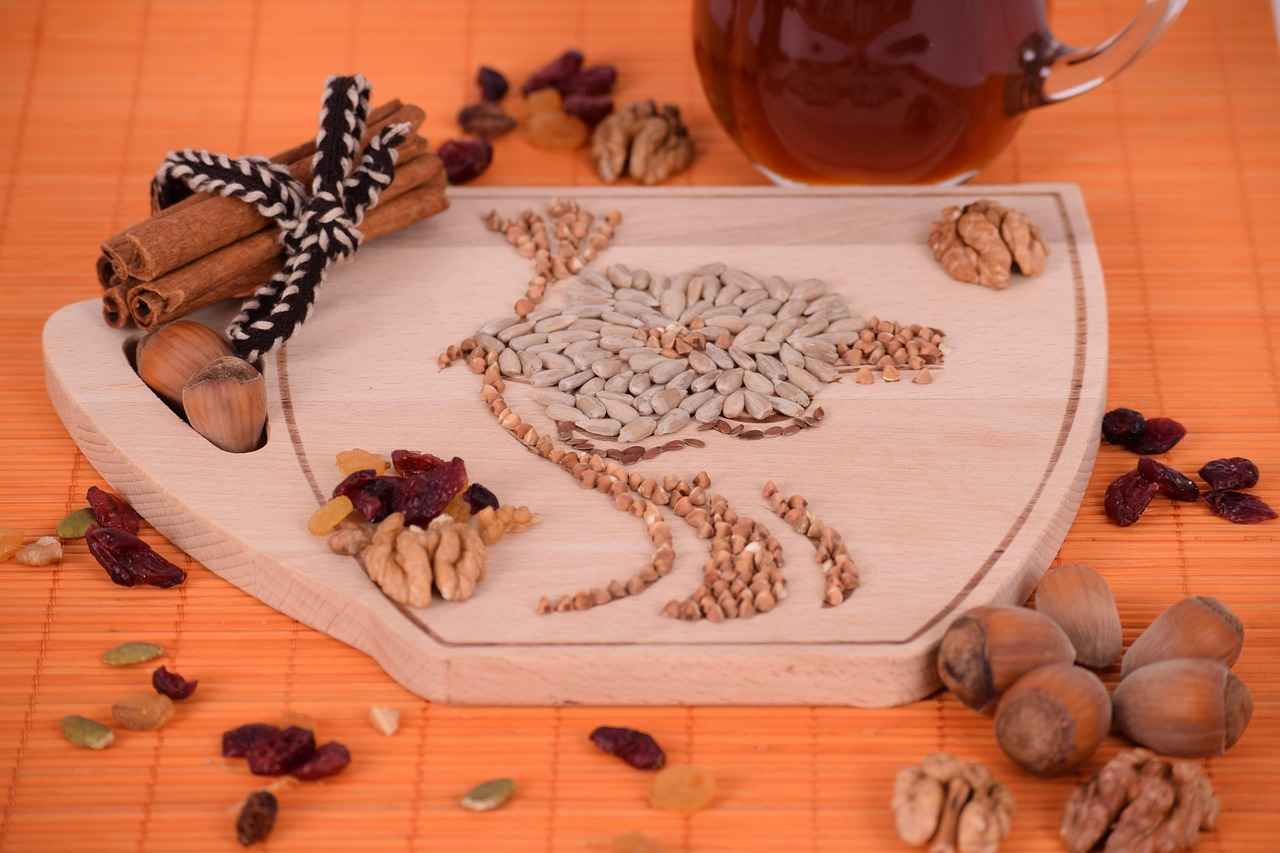
What Are the Potential Side Effects of Chia Seeds?
Chia seeds have gained immense popularity due to their numerous health benefits, but it’s essential to be aware of their potential side effects. Understanding these effects can help individuals make informed decisions about their consumption.
While chia seeds are generally considered safe for most people, some may experience unwanted side effects. These can include:
- Bloating: Some individuals may find that chia seeds lead to bloating, particularly if consumed in large quantities or without adequate hydration.
- Constipation: Due to their high fiber content, chia seeds can cause constipation if not consumed with plenty of water. It’s crucial to balance fiber intake with hydration.
- Digestive Discomfort: Overconsumption can lead to gastrointestinal issues, including gas and cramping.
- Allergic Reactions: Though rare, some people may have an allergy to chia seeds, resulting in symptoms like itching or swelling.
To mitigate these side effects, it is advisable to start with a small amount of chia seeds and gradually increase the intake while ensuring adequate fluid consumption. For most individuals, a daily intake of 1-2 tablespoons is recommended.
To enjoy the benefits of chia seeds while minimizing potential side effects, consider the following tips:
- Soak Before Eating: Soaking chia seeds in water or milk for at least 30 minutes can help them expand and become easier to digest.
- Stay Hydrated: Drink plenty of water throughout the day, especially when consuming fiber-rich foods like chia seeds.
- Incorporate Gradually: Introduce chia seeds into your diet slowly to allow your digestive system to adjust.
Despite the potential side effects, chia seeds offer numerous health benefits, including:
- Rich in Nutrients: Chia seeds are an excellent source of omega-3 fatty acids, fiber, protein, and various vitamins and minerals.
- Supports Digestive Health: The high fiber content can promote regular bowel movements when consumed properly.
- Heart Health: Omega-3 fatty acids are known for their heart-protective properties, helping to reduce inflammation and improve cardiovascular health.
Incorporating chia seeds into your diet can be beneficial, as long as you are mindful of how much you consume and how you prepare them. If you experience ongoing digestive issues after including chia seeds in your diet, it may be wise to consult with a healthcare professional.
If you notice persistent digestive discomfort, such as constipation or bloating, after consuming chia seeds, it’s important to seek advice from a healthcare provider. They can help identify any underlying issues and offer personalized recommendations to improve your digestive health.
In conclusion, while chia seeds can be a healthy addition to your diet, being aware of their potential side effects and taking steps to minimize them can enhance your overall experience. Enjoying chia seeds in moderation and with proper preparation can lead to a variety of health benefits without the discomfort.

How to Incorporate Chia Seeds into Your Diet?
Incorporating chia seeds into your daily meals can be an excellent way to boost your overall health. These tiny seeds are not only rich in nutrients but also versatile, making them easy to add to various dishes. Below are some effective methods to include chia seeds in your diet, ensuring you reap their numerous benefits.
One of the simplest ways to enjoy chia seeds is by adding them to your smoothies. They blend well with fruits and vegetables, providing a nutritious boost. Start with a tablespoon of chia seeds in your favorite smoothie recipe. The seeds will absorb liquid, giving your smoothie a thicker texture and enhancing its fiber content.
Chia seeds can also be a fantastic addition to your morning oatmeal. Simply stir in a tablespoon of chia seeds into your cooked oats. This not only increases the nutritional value but also adds a delightful crunch. For a flavorful twist, consider adding fruits, nuts, or honey to your oatmeal.
When baking, chia seeds can be incorporated into recipes for muffins, breads, and pancakes. They can serve as a substitute for eggs by mixing 1 tablespoon of chia seeds with 2.5 tablespoons of water, letting it sit until it forms a gel-like consistency. This method not only enhances the fiber content of your baked goods but also makes them more moist.
Chia pudding is a popular and nutritious dessert that is easy to prepare. Combine 1/4 cup of chia seeds with 1 cup of your choice of milk (dairy or non-dairy) and let it sit in the refrigerator overnight. In the morning, you can add fruits, nuts, or sweeteners to customize your pudding. This dish is not only delicious but also packed with nutrients.
Sprinkling chia seeds on top of salads can provide a nice crunch and boost the nutritional profile of your meal. They can be used as a topping or mixed into salad dressings for added texture and health benefits. Just a tablespoon can elevate your salad, making it more filling and satisfying.
Chia seeds can also be added to soups and stews, acting as a thickening agent. They absorb liquid and expand, making your dishes heartier. Simply stir in a tablespoon or two during the last few minutes of cooking to enhance the meal’s nutritional value.
If you enjoy making your own snacks, consider adding chia seeds to homemade energy bars. They can provide a great source of energy and nutrition, making them a perfect pre- or post-workout snack. Combine chia seeds with oats, nut butter, and your choice of sweetener for a quick and healthy treat.
In summary, chia seeds are a highly versatile ingredient that can be easily incorporated into your diet through various methods. By blending them into smoothies, mixing them into oatmeal, using them in baked goods, creating chia pudding, adding them to salads, incorporating them into soups, and experimenting with energy bars, you can enjoy their health benefits while enhancing the flavor and texture of your meals. Remember to stay hydrated when consuming chia seeds to maximize their benefits and minimize any potential digestive issues.
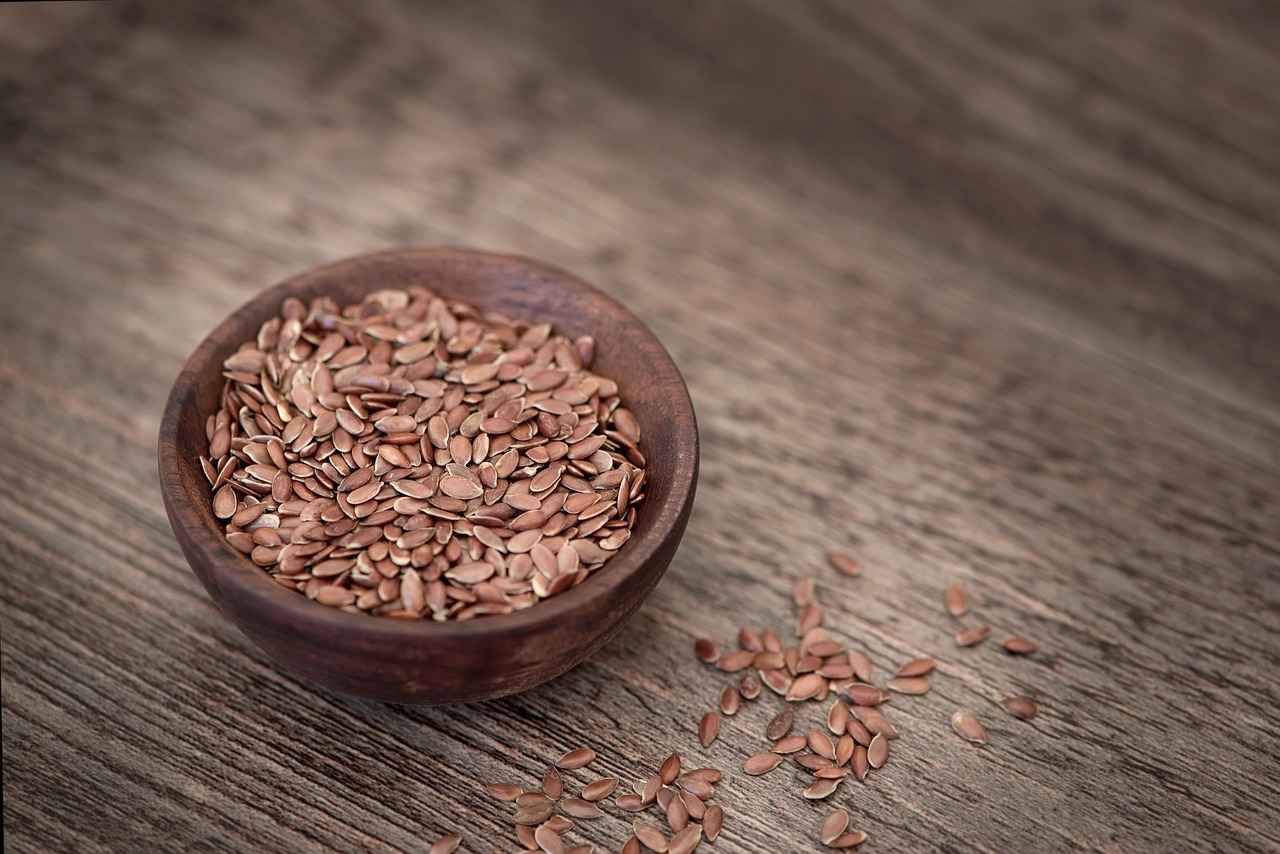
Are There Alternatives to Chia Seeds for Fiber?
When it comes to enhancing your fiber intake, chia seeds are often touted for their numerous health benefits. However, some individuals may experience digestive discomfort after consuming them. If you find yourself in this situation, fear not! There are plenty of fiber-rich alternatives that can support your digestive health without the potential side effects associated with chia seeds.
Flaxseeds are an excellent alternative to chia seeds, offering a similar nutritional profile. They are high in fiber, omega-3 fatty acids, and lignans, which are beneficial for heart health. Like chia seeds, flaxseeds can absorb water and expand, helping to promote regular bowel movements. To enjoy flaxseeds, consider adding them to smoothies, yogurt, or oatmeal. Just remember to grind them for better nutrient absorption.
Oats are another fantastic option for increasing your fiber intake. Rich in both soluble and insoluble fiber, oats help regulate digestion and can prevent constipation. They are versatile and can be enjoyed as oatmeal, in baked goods, or even as a thickener in smoothies. The soluble fiber in oats, known as beta-glucan, also has the added benefit of helping to lower cholesterol levels.
Incorporating a variety of fruits into your diet can significantly boost your fiber intake. Fruits such as apples, pears, berries, and bananas are not only delicious but also high in fiber. The natural sugars in fruits provide a healthy energy source, while the fiber aids in digestion and helps maintain bowel regularity. Try adding fruits to your breakfast cereal, salads, or smoothies for a tasty and nutritious boost.
Don’t overlook vegetables as a source of fiber! Leafy greens, broccoli, carrots, and Brussels sprouts are all packed with fiber and essential nutrients. Including a variety of vegetables in your meals can enhance your overall health and improve digestive function. Aim for a colorful plate to ensure you get a wide range of vitamins and minerals.
Legumes such as beans, lentils, and chickpeas are not only high in fiber but also provide a great source of protein. They can be easily incorporated into soups, salads, or as side dishes. The fiber in legumes helps to promote satiety, making them an excellent choice for those looking to manage their weight while ensuring adequate fiber intake.
Switching to whole grains instead of refined grains can significantly increase your fiber consumption. Foods like quinoa, brown rice, and whole grain bread are rich in fiber and provide essential nutrients. Whole grains help maintain digestive health and can prevent constipation by promoting regular bowel movements.
In conclusion, if chia seeds are causing you digestive discomfort, there are numerous alternatives available that can help you maintain a healthy fiber intake. By incorporating flaxseeds, oats, fruits, vegetables, legumes, and whole grains into your diet, you can enjoy a diverse range of flavors and textures while supporting your digestive health. Always remember to stay hydrated and listen to your body, as individual responses to fiber can vary.

When Should You Consult a Doctor About Digestive Issues?
When it comes to digestive health, it is essential to listen to your body and recognize when something may be amiss. Chia seeds, known for their numerous health benefits, can sometimes lead to digestive discomfort in certain individuals. Understanding when to seek medical advice is crucial for maintaining overall well-being.
If you notice persistent constipation or other digestive issues after consuming chia seeds, it is wise to consult a healthcare professional. This is particularly important if you have made a sudden change to your diet, incorporating chia seeds in large quantities without proper hydration. A healthcare provider can help identify if the chia seeds are the cause of your discomfort or if other underlying issues may be at play.
In addition to constipation, symptoms such as bloating, abdominal pain, or changes in bowel habits can indicate that your body is not responding well to chia seeds. These symptoms may arise from the high fiber content in chia seeds, which can be beneficial in moderation but may lead to issues if consumed excessively or without adequate fluid intake.
It is also essential to consider your overall health status. Individuals with pre-existing digestive conditions, such as irritable bowel syndrome (IBS) or inflammatory bowel disease (IBD), may experience heightened sensitivity to chia seeds. If you have any of these conditions, consulting a healthcare professional before adding chia seeds to your diet is advisable.
Furthermore, if you are experiencing allergic reactions or severe gastrointestinal distress such as vomiting or diarrhea, it is crucial to seek medical attention immediately. These symptoms may indicate a more serious reaction or intolerance to chia seeds.
When consulting a healthcare professional, be prepared to discuss your dietary habits, any recent changes in your diet, and the specific symptoms you are experiencing. This information can help your healthcare provider tailor their advice to your unique health needs.
In summary, while chia seeds can be a healthy addition to many diets, it is important to monitor your body’s reactions. If you experience persistent constipation or digestive discomfort after consuming chia seeds, do not hesitate to consult a healthcare professional for personalized guidance and support. Taking proactive steps to address digestive issues can lead to improved health and well-being.
Frequently Asked Questions
- Can chia seeds really cause constipation?
Yes, while chia seeds are high in fiber and generally beneficial for digestion, improper consumption or insufficient hydration can lead to constipation. It’s all about finding the right balance!
- How much chia seeds should I eat daily?
Experts recommend consuming 1-2 tablespoons of chia seeds per day. Sticking to this amount can help you enjoy their health benefits without any digestive issues.
- What’s the best way to prepare chia seeds?
Soaking chia seeds in water or another liquid before consuming them is a great way to enhance their digestibility. This method allows them to expand and absorb moisture, making them easier on your stomach.
- What should I do if I experience bloating after eating chia seeds?
If you feel bloated after eating chia seeds, try reducing your intake or ensure you’re drinking plenty of water. If discomfort persists, consider consulting a healthcare professional for personalized advice.
- Are there alternatives to chia seeds for fiber intake?
Absolutely! If chia seeds don’t sit well with you, consider alternatives like flaxseeds, oats, or various fruits. These options can also help maintain good digestive health.




